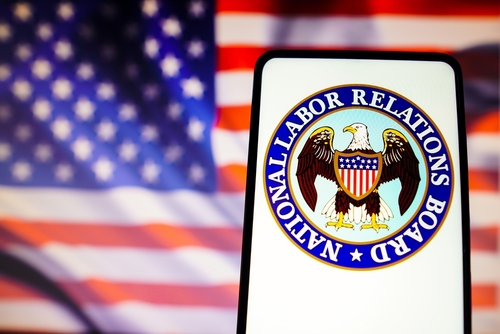On October 26, 2023, the National Labor Relations Board (the “Board”) issued its most recent standard (the “2023 Rule”) for determining when two (or more) entities are considered “joint employers” under the National Labor Relations Act. The 2023 Rule supplants the Board’s previous joint employer rule issued in 2020 (the “2020 Rule”) and expands the landscape where joint employer status can be established. The 2023 Rule goes into effect on February 26, 2024.
Joint employment is a concept whereby an entity, other than an employee’s actual employer, can be held liable as an employer because it exercises a certain degree of control over another entity’s formal employee. A finding of joint employer status is significant as it can create liability under, inter alia, discrimination statutes and wage/hour laws, where it would otherwise not exist given the absence of a formal employer/employee relationship.
The 2023 Rule (Essential Terms and Conditions)
Under the 2023 Rule, two (or more) entities may be considered joint employers if each entity shares or codetermines one or more of the employees’ essential terms and conditions of employment, which are defined as:
- Wages, benefits, and other compensation;
- Hours of work and scheduling;
- The assignment of duties to be performed;
- The supervision of the performance of duties;
- Work rules and directions governing the manner, means, and methods of the performance of duties and the grounds for discipline;
- The tenure of employment, including hiring and discharge; and
- Working conditions related to the safety and health of employees.
Key Points, Including Reserved/Indirect Control and Collective Bargaining
The 2023 Rule lowers the bar to establish joint employer status. Joint employer status is met so long as one of the essential terms and conditions of employment is present. More importantly, the 2023 Rule abolished the requirement that an entity must possess and exercise “substantial direct and immediate control” over the essential terms or conditions. Rather, joint employer status is now met if an entity has indirect control or simply reserves authority to control an essential term or condition. As such, the 2023 Rule prevents employers from avoiding joint employer status and their bargaining obligations by using an intermediary to implement essential terms and conditions of employment. Additionally, safety and health related conditions are now expressly set forth as an essential term or condition.
Lastly, the 2023 Rule requires that a joint employer bargain collectively with employee representatives “with respect to any term and condition of employment that it possesses the authority to control or exercises the power to control, regardless of whether that term or condition is deemed to be an essential term and condition…”
What It All Means for Employers
Once joint employment has been determined, a joint employer will be required to bargain over the particular essential terms and conditions of employment, as well as other mandatory subjects of bargaining that it possesses or exercises the authority to control.
Employers should take steps to review and, if needed, update their contracts with third-party vendors or staffing agencies. Under the new rule, employers may be deemed to be joint employers of these entities’ employees and therefore subject to collective bargaining. If employers become aware of this potential now, they can avoid unknowingly engaging in unfair labor practices as well as the resulting consequences.
The National Labor Relations Board consistently presents complex and ever-changing standards for employers, and the expansion of joint employment is no exception. Employers would be wise to consult legal counsel to navigate the 2023 Rule and ensure that they remain in compliance with, inter alia, fair labor standards.
Michael Luchsinger is a shareholder at Segal McCambridge. He may be reached at MLuchsinger@SMSM.com.
Andrew Kates is a shareholder at Segal McCambridge. He may be reached at akates@smsm.com.

